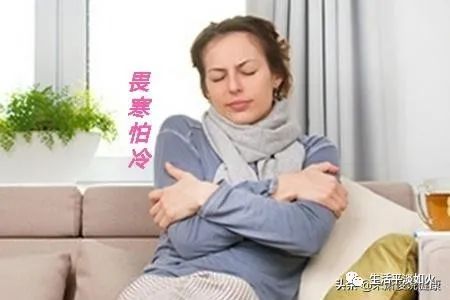In daily life or work, if in a group, the female energy surpasses that of the males, we use the term “Yin Sheng Yang Shuai” to describe it.
In fact, “Yin Sheng Yang Shuai” originates from a TCM theory regarding a pathological condition called “Yin Sheng Ge Yang”, which can also be abbreviated as “Ge Yang”.
The character “Ge” in Chinese has at least four interpretations: first, it refers to a grid, such as graph paper; second, it refers to specifications or formats, such as character, qualification, or uniqueness; third, it refers to quality or demeanor, such as personality, style, or character; and fourth, it refers to obstruction or limitation, such as being restricted by established norms.
In “Ge Yang”, the term “Ge” indicates obstruction or limitation; Ge Yang means that the internal Yang energy is obstructed or limited, allowing Yin energy to “develop, thrive, and flourish”.
Thus, Yin Sheng is relative to Yang Shuai (Ge Yang), and the symptoms of excess Yin in women are also related to the deficiency of Yang (Ge Yang) within their bodies.
Next, I will discuss the changes that occur in the body due to Yin Sheng and Ge Yang, as well as the symptoms of excess Yin in women. This is for reference only.

What Changes Occur in the Body Due to Yin Sheng and Ge Yang?
Nature requires a balance of Yin and Yang forces; as humans who are one with nature, our bodies also require a balance of these forces.
If the Yang energy in our body is abundant, the Yin energy will be deficient; conversely, if the Yin energy is abundant, the Yang energy will be deficient. Therefore, if the Yang energy in the body is extremely deficient, it will lead to an excess of Yin energy; since Yin is cold and Yang is hot, an excess of Yin will cause the cold Yin energy to become vigorous.
The vigorous cold Yin energy in the body will obstruct and limit the hot Yang energy outside of our bodies, resulting in symptoms that often present as true internal cold Yin and false external hot Yang.
Specifically, our bodies will exhibit a series of contradictory symptoms: for example, we may feel hot but still want to cover ourselves with blankets; we may feel thirsty but unable to drink, etc. These seemingly contradictory symptoms.
Thus, the condition of Yin Sheng and Ge Yang in the body will manifest a series of contradictory symptoms.

What Symptoms Are Associated with Excess Yin in Women?
In summary, excess Yin is caused by Yang deficiency (Ge Yang), so the symptoms of excess Yin in women fundamentally stem from Yang deficiency, as detailed below.
1. Sensitivity to Cold: This is the most typical symptom of Yang deficiency. Yang energy represents energy and heat; when Yang energy is insufficient, the internal energy and heat are naturally lacking, allowing cold Yin energy to invade.
2. Lack of Energy: With insufficient Yang energy and excessive Yin energy, it is like a continuous rainy day, bleak and withering, with cold energy pressing in. How can one feel invigorated when they are lethargic and inactive?
3. Cold Uterus and Dysmenorrhea: Excess Yin in women, with insufficient Yang energy, leads to internal cold; when Yin cold is too heavy, it can cause cold uterus and dysmenorrhea, delayed menstruation, or even amenorrhea, leading to uterine and ovarian changes, and in severe cases, infertility or miscarriage.
4. Indigestion: With insufficient Yang energy, there is a lack of adequate energy to promote gastrointestinal peristalsis and digest food; thus, with Yang deficiency and excess Yin, the food ingested cannot be fully digested.
5. Weight Gain: With excess Yin and insufficient Yang energy, the evaporation of moisture in the body is slow, so excess moisture can only accumulate in the body, leading to weight gain over time.


